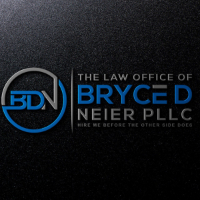 Fayetteville Criminal Lawyers, North Carolina
Fayetteville Criminal Lawyers, North Carolina
Sponsored Lawyers
1-10 of 29 matches
Divorce & Family Law, Criminal, Lawsuit & Dispute, Entertainment, Ethics
The Law Office of Bryce D. Neier is based in Fayetteville, North Carolina and I handle a wide range of civil matters. However, the focus of my practice is domestic law – divorce, child custody, child support, alimony, and property division – as well as DUI / DWI and traffic violations. I routinely represent clients throughout Cumberland, Hoke, and Robeson Counties, which includes the cities of Fayetteville and Lumberton, and the town of Raeford. In addition, I am committed to serving military personnel and their families stationed at Fort Bragg, Pope Air Force Base, and overseas.
(more)Car Accident, Motorcycle Accident, Criminal, Wrongful Death, Workers' Compensation
Andrew R. Dempster Jr. "Drew" is a second generation attorney. Drew grew up in Fayetteville, North Carolina where he graduated from Pine Forest High School. He received his undergraduate degree from Methodist University and his Law degree from North Carolina Central School of Law. Before joining the Smith Dickey Dempster Law Firm, Drew was an Assistant District Attorney in Cumberland County, North Carolina.
(more)Family Law, Criminal, Estate
At The Law Office of Robert L. Schupp, PLLC., our mission is to guide you through complex legal matters with clarity, confidence , and a commitment to protecting your rights, your family, and your future. We serve the greater Johnston County and surrounding areas such as Wayne County, Harnett County, and Cumberland County. Our firm specializes in handling divorce, child custody, child support, adoption, domestic violence, traffic violations, criminal misdemeanors, estate administration, and probate. We listen carefully, advise clearly, and advocate with purpose, helping you navigate challenges and lay a strong foundation for a stable and secure future. Context us today to take the first step and schedule a FREE consultation!
(more)Divorce & Family Law, Criminal, Wills & Probate, Guardianships & Conservatorships
Jonathan Breeden is a successful family law lawyer in Garner, North Carolina. He graduated from NC State with a political science degree in just three years, and went on to spend time working in the North Carolina General Assembly and learning the inner workings of government before attending Campbell University School of Law. He chose Campbell because of the practical legal education offered, including courses in how to practice in North Carolina district courts, where the bulk of legal business is conducted, and how to start a law practice. While in law school, he interned with the District Attorney offices in Scotland and Hoke counties, where he gained valuable experience in how criminal cases are handled. He also studied law abroad in London, England through a summer program and learned the value of living and studying in another country and culture. The education he received at Campbell provided Jonathan the foundation he needed to start his own practice once he passed the bar exam. He settled in Johnston County because of its rapid growth, and found that young families had need of qualified lawyers to help with various domestic and family law matters.
(more)







